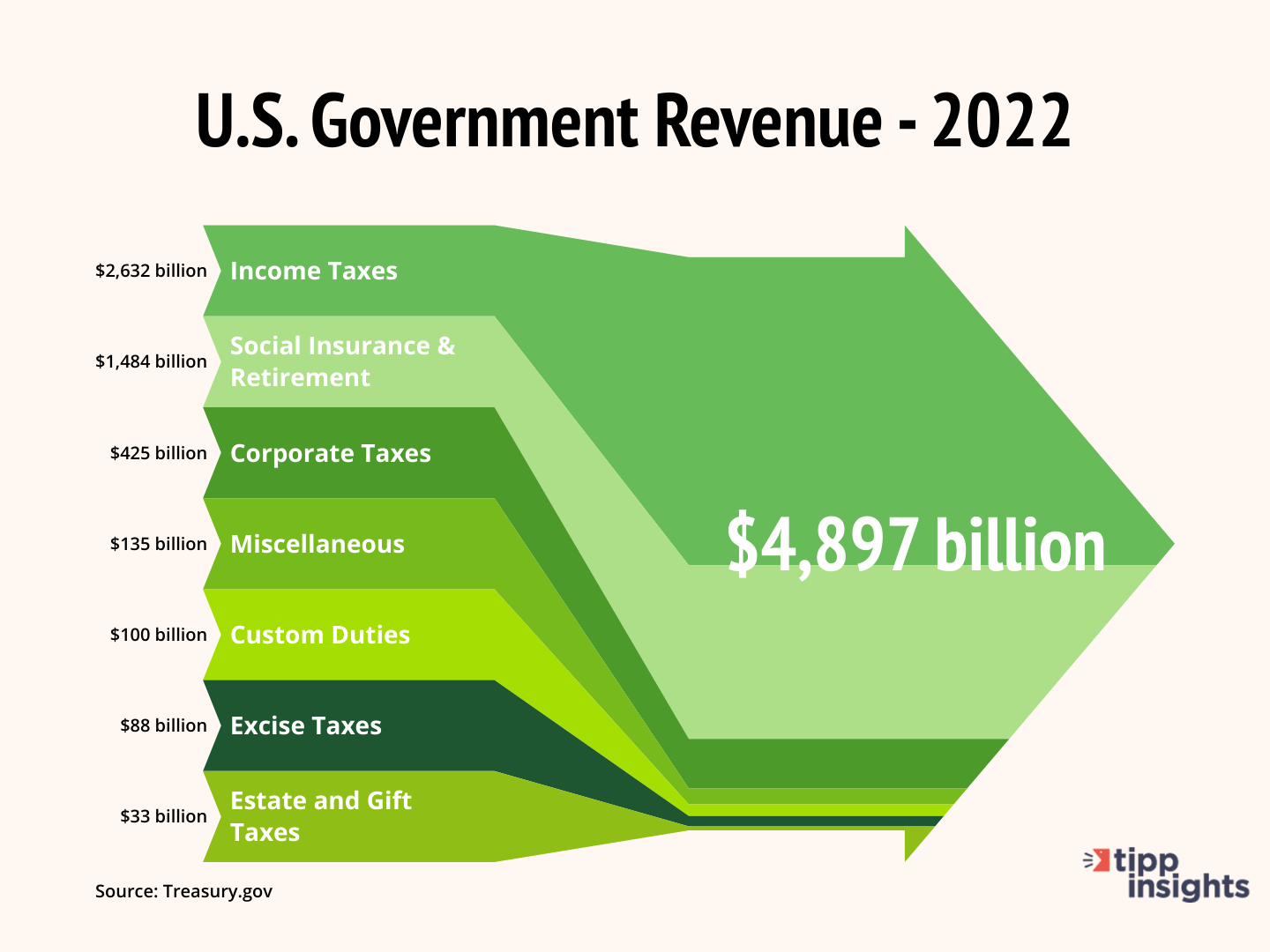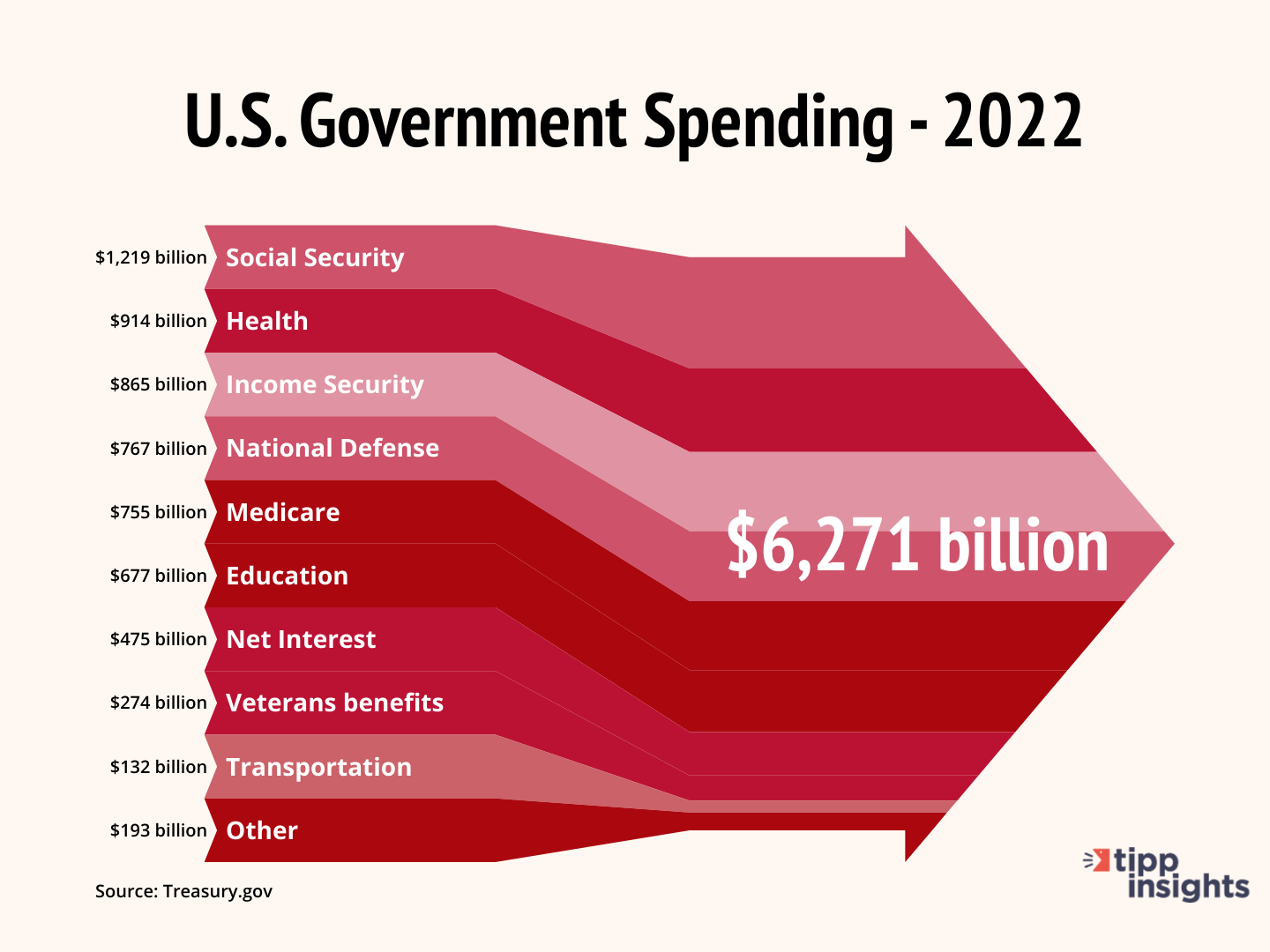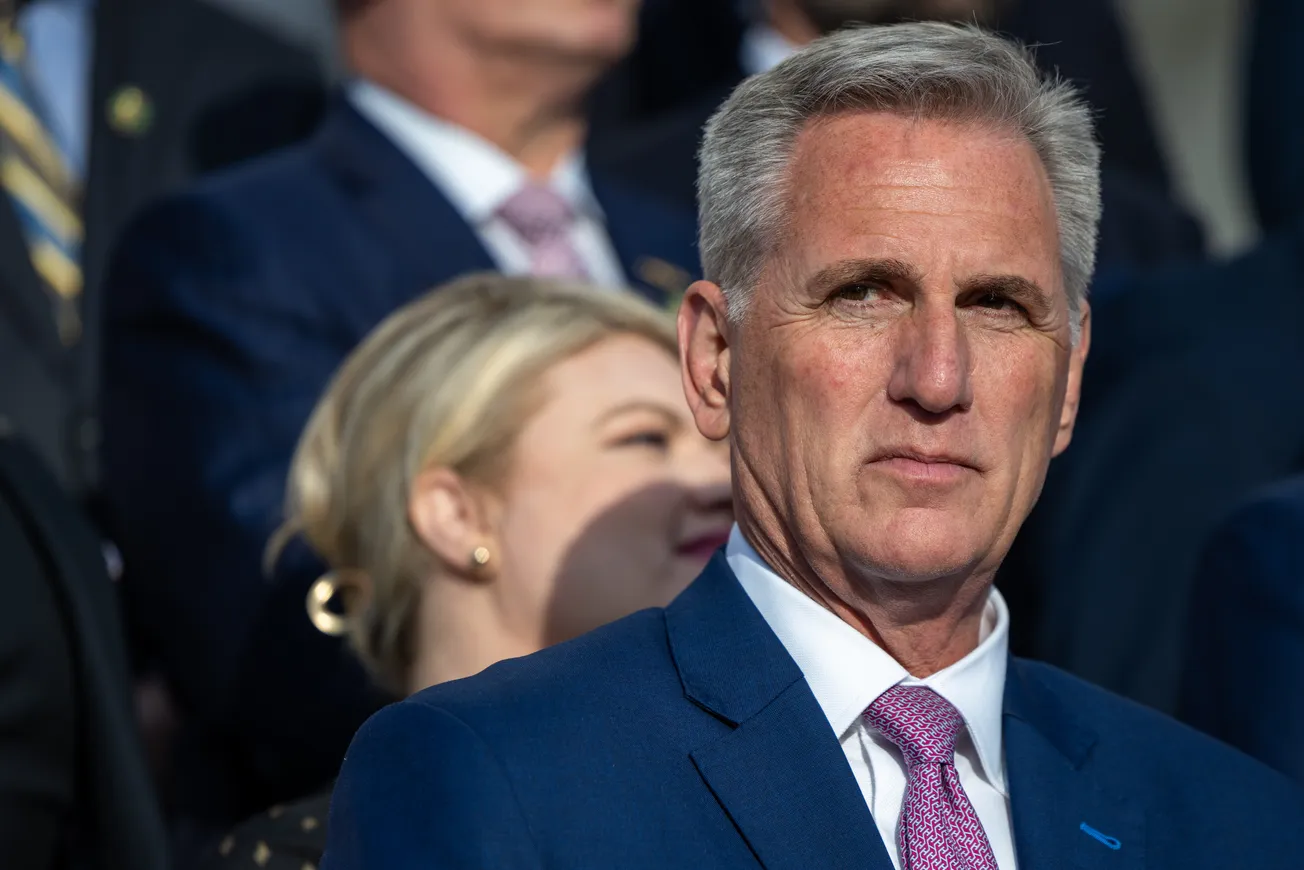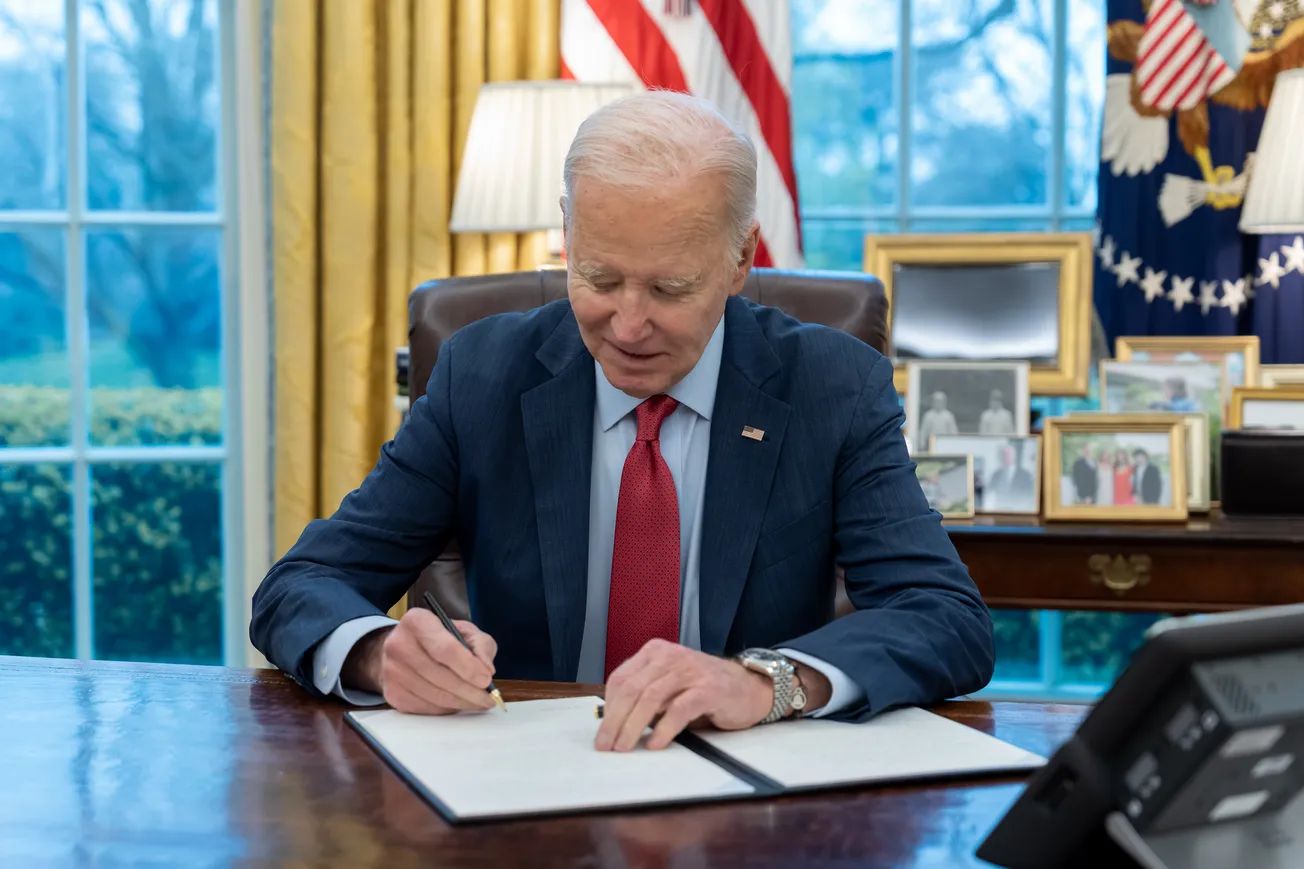Speaker Kevin McCarthy traveled to New York this week and delivered a speech to Wall Street types at the New York Stock Exchange. He touched upon various issues plaguing the nation but focused his prepared remarks on the budget.
"So here is our plan: In the coming weeks, the House will vote on the bill to lift the debt ceiling into the next year, save taxpayers trillions of dollars, make us less dependent on China, and curb our inflation, all without touching social security and Medicare." Before he headed to New York, McCarthy had given reporters a preview of his idea. In return for the one-year debt limit increase, he would present a budget that would roll back domestic, non-defense spending to 2022 levels.
McCarthy's proposal is so unserious and so full of political BS that we shook our heads in disbelief. Is this the best the new Speaker can do to help correct the fiscal mess in which America finds itself?
Let's unpack the numbers. In Fiscal 2022, federal revenue was $4.896 trillion. But expenditures, at $6.272 trillion, far exceeded revenue as the economy was still recovering from Covid. The difference resulted in one of America's largest annual deficits: $1.375 trillion.


For Fiscal 2023, President Biden has proposed a totally irresponsible and reckless budget of $6.8 trillion, about $530 billion more than Fiscal 2022, although Covid is long behind us. His defense budget is the biggest in history, at $886 billion, compared to $767 billion last year. If Congress blesses Biden's budget request as is, the federal deficit will reach nearly $2 trillion. Yes, a deficit of $2 trillion.
The problem with the American budget is that a majority of the cost components are due to entitlement-led mandatory spending. McCarthy does not want to cut Social Security and Medicare, the two most significant elements of entitlement expenditures. Entitlement reform has been debated in the halls of Congress for decades, but no party has the will to do anything about it because of the expected political backlash.
Defense takes an increasingly big bite of the pie. No politician has ever won an election or been successful in a reelection by campaigning for defense cuts. McCarthy has vigorously supported the Biden administration, which has carelessly committed $116 billion to the Ukraine war, money we don't have. McCarthy says that he will not touch defense spending.
A third sizable compulsory spending item is the interest on the federal debt. As we noted last month, the Fed's belt-tightening has made the cost of debt servicing by the United States more expensive with each rate hike announcement. For the ten-year period of 2023-2032, the Congressional Budget Office (CBO) estimated in May 2022 that the budget deficit would be $15.7 trillion. Ten months later, after the Fed had increased the Fed Funds rate by 475 basis points, the CBO reran the numbers. For the same period, 2023-2032, the ten-year deficit projections had increased by an incredible $3.1 trillion to $18.8 trillion. Nearly 68% of this increase, about $2.1 trillion, was because of one factor: the higher interest rate with which the government has to service its debt.
If we exclude mandatory spending items, we're left with what is called "Discretionary Spending." McCarthy is suggesting that he will keep this amount at 2022 levels. The National Priorities Project calculates 2022 discretionary spending to be $1.5 trillion. This amount would be about 22% of Biden's 2023 budget.
In other words, McCarthy proposes to vote on a budget that would give us at least a $1.375 trillion deficit for 2023, plus significantly higher debt service costs, which would add to the deficit, plus $119 billion in extra defense expenditures, mostly appropriations for the Ukraine war, which would again increase the deficit.
Is this the mark of a serious proposal? Worse, is it such a serious proposal that it has to be tied to raising America's debt ceiling as leverage? McCarthy knows that his proposals would never pass the Senate, and even if they did, Biden would veto the bill. The Democrats and the media will then blame McCarthy, who will eventually cave and sign off on the debt ceiling anyway, without getting even his meager priorities of holding discretionary spending to 2022 levels passed.
No, Speaker McCarthy, now is the time to enact bold steps to stop America's addiction to deficits. Agree to raise the debt ceiling for four months in return for appointing a bipartisan commission, like Simpson-Bowles, that would examine every aspect of the federal budget, including taxes and defense spending with its far-flung bases worldwide, and report back to Congress by next summer. Social Security reform should be an integral element. Things won't be easy, but the American people will back you up. No one can bad-mouth you because the commission's proposal would get an up or down vote in Congress.
Once the commission is formed and constituted, Speaker McCarthy, you could raise the debt ceiling through the early Fall of next year, right in the middle of the election season, so that Americans have a say at the ballot box. You could then force votes on the House floor and raise the ceiling to the first 100 days of the next presidential administration so the country can come together to pass a bill into law.
As de-dollarization initiatives are picking steam, America is losing its stature as a world power. We need you to become a bold leader who can restore America's global standing by fundamentally changing how America spends more than it takes in. You have the Speaker's gavel. Use it to act and help save America.
Like our insights? Show your support by becoming a paid subscriber!
Want to show your appreciation? Donate






